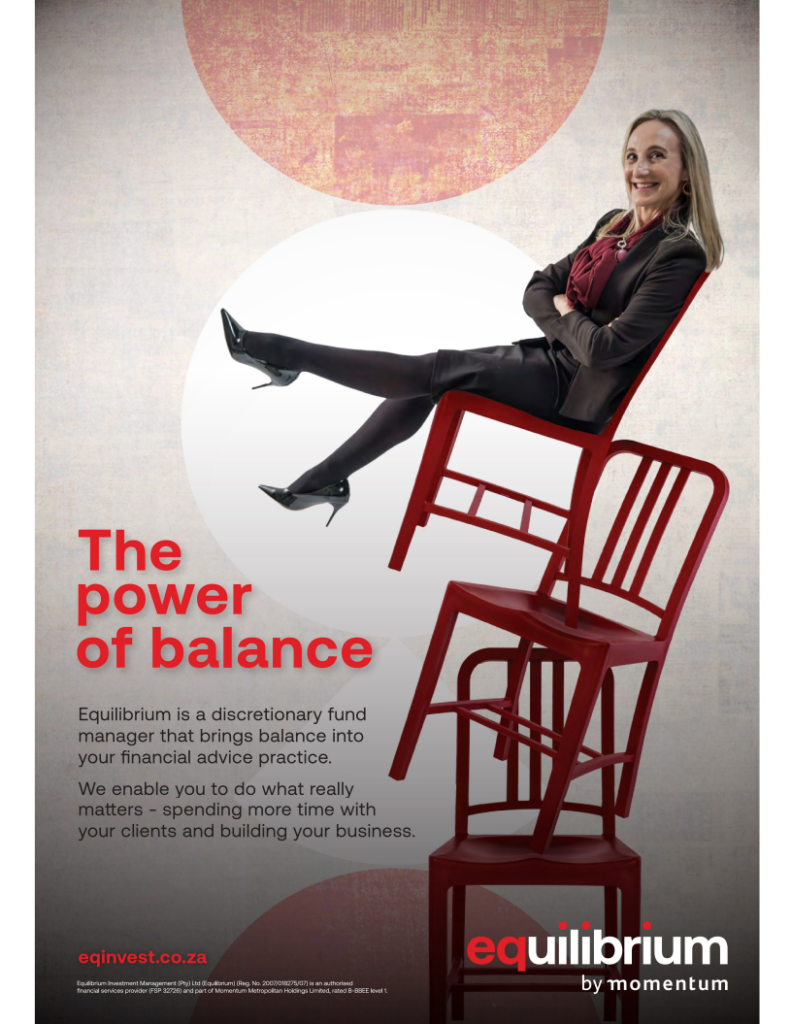Paul Nixon, head of behavioural finance at Momentum Investments
Is the investment management industry successful?
PwC estimates that by 2025 global assets under management will reach the $145 trillion mark(1). This may sound successful, but finance researchers, State Street, argue that while the industry is profitable it is not successful(2). This is because success should be measured by the extent to which each person reaches their investment goals, and this is where they believe the investment management industry fails.

Why do investors struggle to reach their goals?
Investors generally have more information at their fingertips through online research than they ever had before. This provides them with high levels of overconfidence in using this ‘scientific’ evidence to support their beliefs. This means very risky investments like cryptocurrency, for example, may not feel as risky as they should to them. Added to that, investors often don’t have sufficient short-term buffers or savings in place to allow risky asset classes the time they need to deliver. This pushes them closer to being speculators with micro-time horizons and moves them further away from being true long-term investors or wealth creators.
More investment products and funds appear to struggle annually to differentiate themselves and target the fabled “alpha” or outperformance set against arbitrary market-related benchmarks. Investing is personal, and this approach often distracts investors from the most important decision-making to achieve their personal investment goals, i.e. what is the overall mix of assets they should invest in. This is termed asset allocation and relates to the proportion of equities or shares, property, fixed income, cash, and offshore investments in an investor’s portfolio. It is one of the most important determinants of investment returns although many investors seem to think that past performance is more important.
During the COVID-19 pandemic, research conducted by Momentum Investments showed that clients destroyed over R600 million(3) in value from switching between different funds. We call this paying a ‘behaviour tax’ and is calculated as the performance difference between the fund switched from and the fund switched to. The more clients continue to battle with reaching their investment goals (whether it is through their own behaviour or not) the greater the threat to the adviser as distrust and dissatisfaction may ultimately result in disintermediation or investors seeking more direct and low-cost advice offerings.
This leads us to the biggest buzzword of 2023 so far, ChatGPT, a chatbot developed to transfer learning, by providing detailed responses across many domains of knowledge. The name may not roll off the tongue but there is no doubt that artificial intelligence (AI) poses a serious threat to financial advisers. AI combined with automated advice can do something that advisers cannot and that is to provide in-the-moment financial education and advice.
This is where the value propositions of a discretionary fund manager (DFM) and financial adviser are perfectly geared to solve these challenges. The DFM takes the investment management responsibility away from the adviser and focuses different investment strategies (such as value, growth and momentum) on the investor’s goals to provide clients with better outcomes. The financial adviser can then focus on critical aspects like behavioural management to ensure that the client has a far better chance at achieving their investment goals.
This behavioral coaching provides a valuable shield against AI because it is something that clients would prefer to receive from other humans who can empathise with them through experiencing similar trials and tribulations. Future-fit financial advisers are accumulating new skills like psychology to manage overconfidence from the investor as well as other psychological and behavioural pitfalls.
The DFM together with the financial adviser play a crucial role in making investments truly personal and while AI in financial advice is inevitable, the DFM allows financial advisers to do what they do best which is to manage the battle plan to get investors to their personal investment goals. This is what makes the industry truly successful, and investing truly personal.
Our trusted DFM partner, Equilibrium, offers discretionary fund management and investment consulting services and solutions to help your clients achieve their investment goals. For more information go to eqinvest.co.za.
Source:
1 https://www.pwc.com/ng/en/press-room/global-assets-under-management-set-to-rise.html
2 McDowall, R., 2013. The Folklore of Finance. Folklore, 124(3), pp.253-264.



